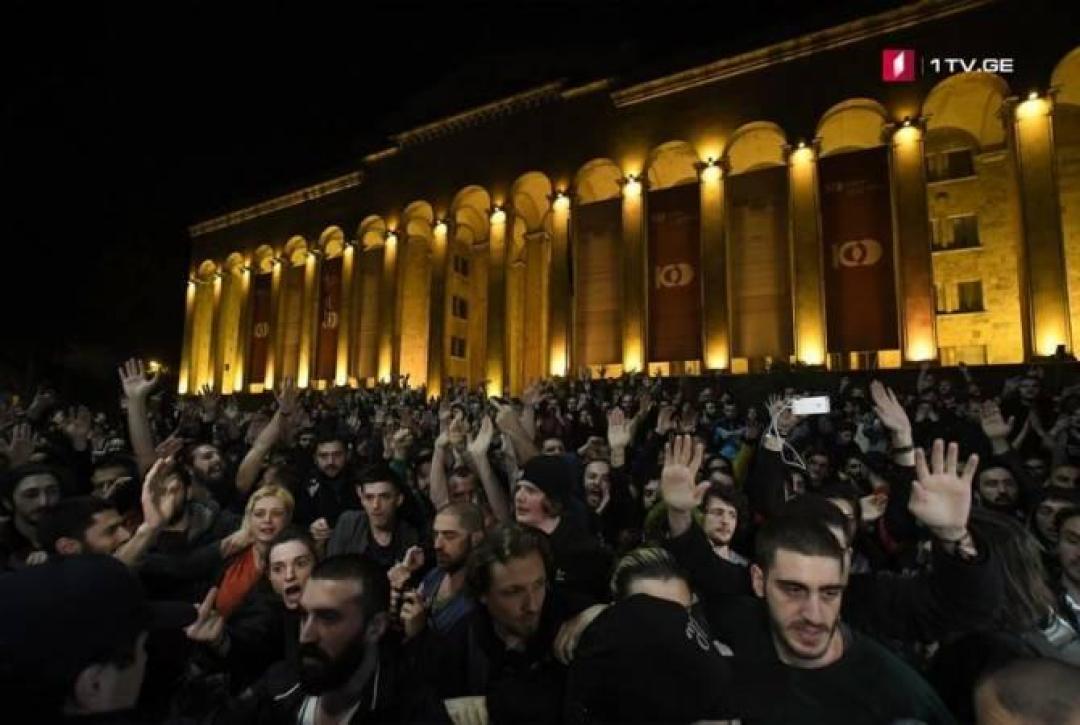
Georgia's Political Crisis Deepens: US Lawmakers Propose Sanctions, Opposition Calls for PACE Action

On January 3, Joe Wilson, the Chair of the Helsinki Commission, and Steve Cohen, the Commission’s Co-Chair, reintroduced the MEGOBARI Act, proposing sanctions against Georgian government officials for human rights violations and undermining democracy.
The legislation requires US government agencies to report to Congress on improper influence, sanctions evasion, and Russian intelligence activities in Georgia. On January 4, Wilson emphasized, “It is our first priority to ensure the Georgian Nightmare comes to an end, and the Axis of Aggressors stop terrorizing the people of Georgia.” Commenting on the bipartisan nature of the bill, Cohen stated, “We get sworn in in about 15 minutes, so even before being sworn in, the American congress is standing with the people of Georgia.”
On January 4, Georgia's Ministry of Internal Affairs reported that the Department of Migration expelled 91 foreign nationals in November and December 2024, with 25 of them participating in ongoing protests in Tbilisi. Ten of these individuals had already left the country, either voluntarily or through enforced deportation. The department noted that those involved in pro-EU demonstrations were subjected to administrative sanctions but did not specify their countries of origin. Other deported nationals came from Iran, Algeria, India, Morocco, Sri Lanka, Egypt, Pakistan, Nigeria, Iraq, Turkey, Azerbaijan, Russia, and Turkmenistan. The Migration Department added that 430 foreign nationals were expelled in 2024, marking a 126% increase from the previous year.
On January 5, protests continued for the 39th consecutive day across Georgia, with demonstrations in Tbilisi, Zugdidi, Batumi, and Kutaisi. The protesters’ demands remained unchanged.
On the same day, three opposition parties, Coalition for Change, Unity-UNM, and Strong Georgia, sent a joint letter to Theodoros Rousopoulos, the President of the Parliamentary Assembly of the Council of Europe (PACE), and leaders of Assembly political groups, urging them not to verify the credentials of Georgia’s parliamentary delegation at the upcoming 2025 Plenary Session scheduled for January 27.
The opposition cited the “deeply flawed” October 26 elections and the ongoing political crisis as grounds for their appeal, referencing Rule 8.2 of the Assembly Rules of Procedure, which allows challenges in cases of “serious violation of the basic principles of the Council of Europe” or “persistent failure to honor obligations and commitments.” They argued that “the scale and intensity of falsification mechanisms used by the Georgian Dream fundamentally undermined the credibility of the electoral process, eroded public trust, and grossly violated fundamental principles of free and fair elections.”
The opposition also raised concerns over potential Georgian delegation members facing international sanctions, particularly mentioning Bidzina Ivanishvili, whom they accused of “democratic backsliding, electoral fraud, state-sponsored terror, mass human rights violations, and the persecution of political opponents and activists.” They urged PACE to adopt a “principled stance” by advocating for new elections and the release of detained protesters, describing these steps as “the only way, the European way, to resolve the current severe crisis.”
See Also


Mirzoyan Meets US Deputy Assistant Secretary Joshua Huck

Azerbaijani President Holds Talks with UAE and German Business Delegations on Economic Cooperation

Grigoryan Confirms Armenia’s Readiness to Dissolve OSCE Minsk Group Upon Peace Treaty Signing

Azerbaijani Official Warns of Ecological Risks to Caspian Sea, Similar to Lake Urmia and Aral Sea

